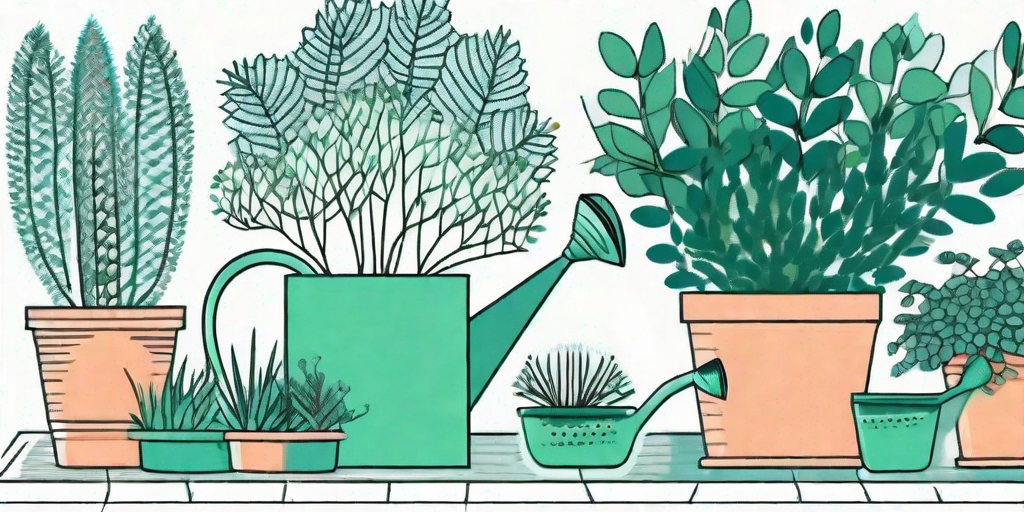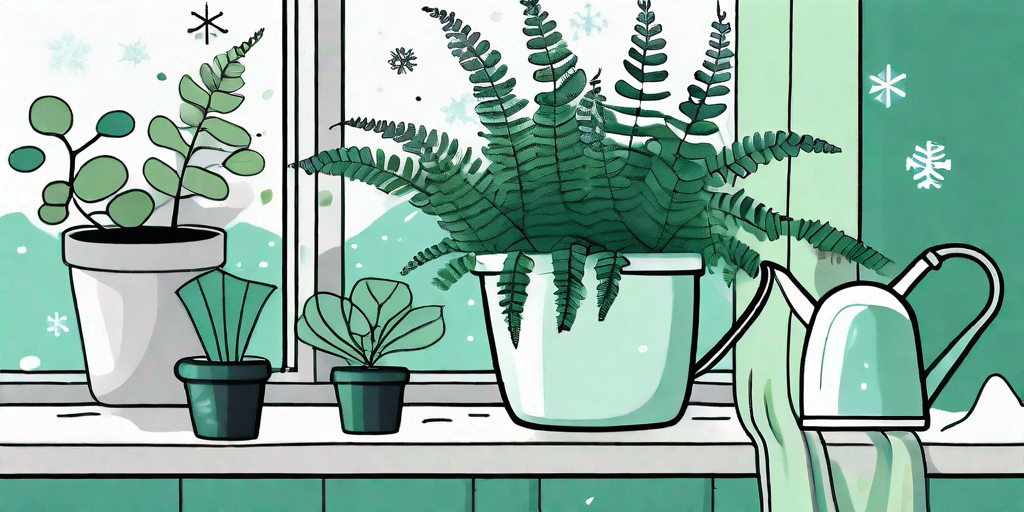
Winter is coming, and no, we're not talking about the popular TV show. We're talking about the real deal, the season of snow and ice, the time of year when your Boston Fern might start looking a bit under the weather. But fear not, dear plant parent, for we have the perfect survival guide for your greenery. So, grab a cup of hot cocoa, snuggle up in your favorite blanket, and let's dive into the world of Boston Fern winter care.
Understanding Your Boston Fern
Before we get into the nitty-gritty of winter care, let's take a moment to understand our green friend, the Boston Fern. Known scientifically as Nephrolepis exaltata, this plant is a tropical beauty that loves humidity and indirect light. It's like the diva of the plant world, always demanding the spotlight but not too much, mind you. Too much light, and it might just throw a tantrum.
Now, you might be wondering, "How does a tropical plant survive in winter?" Well, that's where the magic of indoor gardening comes in. With a little bit of knowledge and a lot of love, you can create a winter haven for your Boston Fern. So, let's get started, shall we?
Creating the Perfect Winter Environment
Temperature and Humidity
First things first, let's talk about temperature and humidity. Boston Ferns prefer temperatures between 65-75°F (18-24°C) during the day and slightly cooler at night. So, unless you live in a tropical paradise, you might need to crank up your heater a bit. But remember, too much heat can dry out your plant, so it's all about finding the right balance.
As for humidity, Boston Ferns love it. They're like the plant version of a sauna enthusiast. So, during winter, when the air tends to be drier, you might need to provide some extra humidity. This can be done by placing a tray of water near your plant or using a humidifier. You can also mist your fern regularly, but be careful not to overdo it. Remember, it's a diva, not a water nymph.
Light and Water
Next up, light and water. As mentioned earlier, Boston Ferns prefer indirect light. So, place your plant near a north or east-facing window, but not too close. You don't want it to get sunburnt. Yes, plants can get sunburnt too. It's not just a human problem.
When it comes to watering, Boston Ferns prefer their soil to be consistently moist but not waterlogged. So, during winter, when the rate of evaporation is slower, you might need to adjust your watering schedule. A good rule of thumb is to water your plant when the top inch of soil feels dry to the touch. And remember, it's better to under-water than over-water. Your fern might be a diva, but it's not a drama queen.
Common Winter Problems and Solutions
Brown Leaves
One of the most common problems Boston Fern owners face during winter is brown leaves. This can be caused by a variety of factors, including low humidity, over-watering, or too much light. To solve this problem, first, identify the cause. If the air is too dry, increase the humidity. If you're over-watering, cut back. If your plant is getting too much light, move it to a shadier spot. Remember, your fern is a diva, and divas need their beauty sleep.
Leaf Drop
Another common problem is leaf drop. This can be quite alarming, especially if you're new to plant parenthood. But don't panic. Leaf drop is a normal response to stress, and winter can be quite stressful for a tropical plant. The best solution is to provide the best care possible and wait for spring. Your fern might be a diva, but it's also a survivor.
Frequently Asked Questions
- Why is my Boston Fern losing leaves in winter?
Leaf drop is a normal response to stress, and winter can be quite stressful for a tropical plant. Make sure you're providing the right care, and wait for spring. - How often should I water my Boston Fern in winter?
Water your plant when the top inch of soil feels dry to the touch. Remember, it's better to under-water than over-water. - Can Boston Ferns survive winter?
Yes, with the right care, Boston Ferns can survive and even thrive during winter.
So, there you have it, a comprehensive guide to surviving winter with your Boston Fern. Remember, winter care is all about understanding your plant's needs and providing the right environment. And most importantly, don't forget to enjoy the process. After all, gardening is not just about the destination, it's about the journey. So, bundle up, stay warm, and happy gardening!















